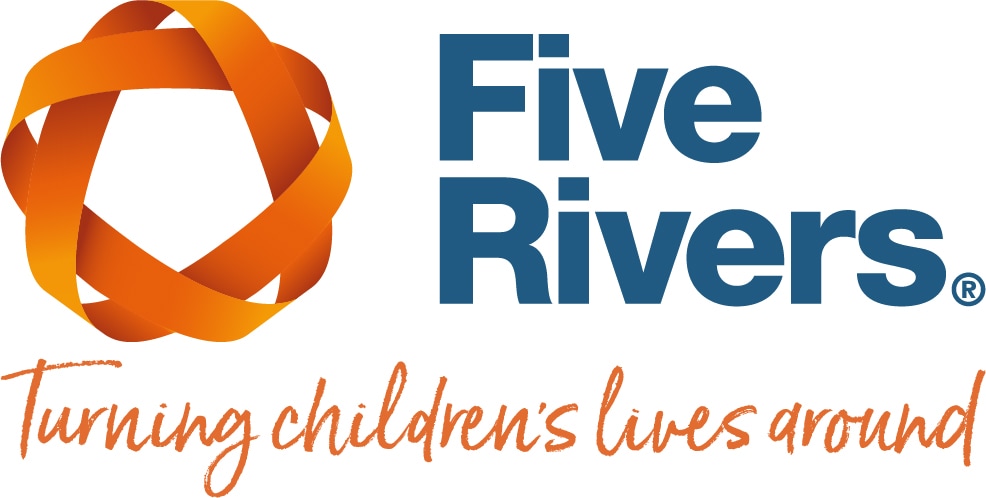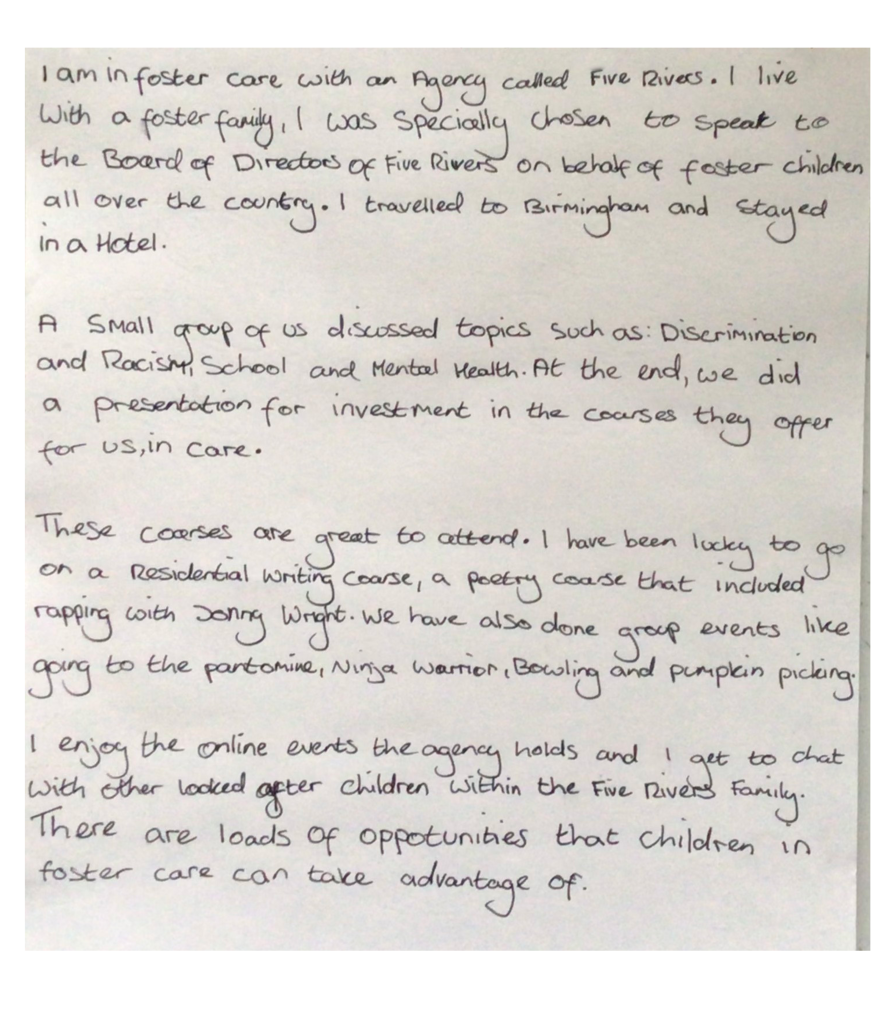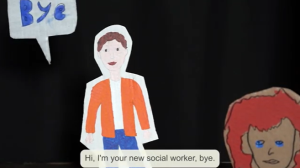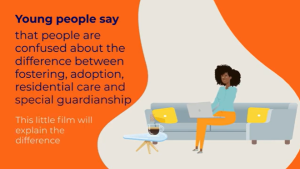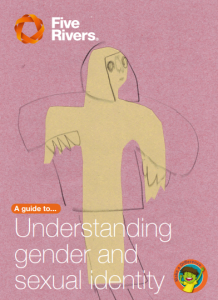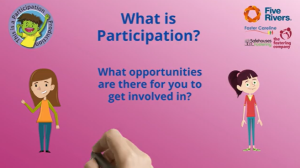Supporting Looked-After Children in Mainstream Education
The following resources have been created to highlight the difficulties that children in care sometimes face in mainstream schools. These resources have been co-developed with young people in care as part of our Participation programme.
Supporting looked-after children to settle and learn in school requires an appreciation of how to nurture a ‘psychologically safe’ environment. Creating an environment where children can learn and grow also requires a deep understanding of how childhood adversity can impact children’s experiences, relationships, behaviour and capacity to engage with education.
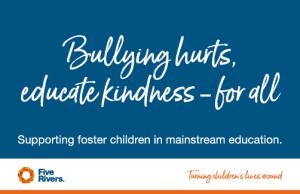
Every child deserves the best opportunity to thrive in a school; that is why we are committed to helping the children we look after, who have experienced challenges at schools, to convey powerful messages which we hope will bring about positive change.
At Five Rivers, we are committed to being part of the wider solution to help children now and in the future. We have focussed our participation programme heavily on understanding better children’s experiences in school, and this is what we have learnt.
Difficulties that children in care can face in school:
- Moving schools during key stages of their education.
- The child’s background might not be shared with all teachers.
- They could have undiagnosed additional needs.
- Low confidence and self-esteem.
- Anxiety, depression or other mental illnesses.
- Distrust in adults and authority figures.
- They could lack a sense of belonging.
- They could replicate abusive or bullying behaviour learned from parents.
.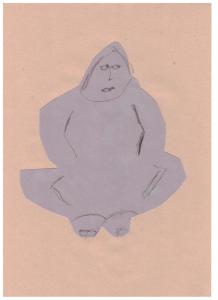
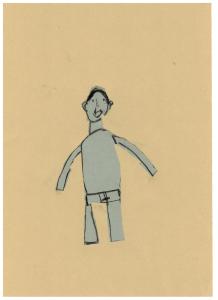

Most people in my class make fun of me deliberately because I’m in foster care and because I don’t live with my mum.
Ways to overcome these difficulties: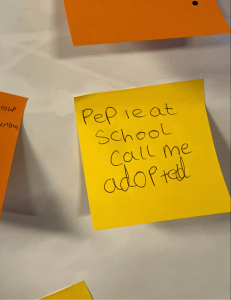
- Help to ensure that school staff and team members are aware of the individual needs of looked-after pupils while maintaining appropriate confidentiality.
- Put together a plan in partnership with the child, their carer, and their social worker to agree on the most appropriate communication within school hours.
- Learn about the type of care the child is in, to understand more about what their lived situation is like, and the right language to use with them.
Children who have experienced adversity and trauma can struggle with trusting others, including their teachers. Imagine entering a world as an infant where adults are characterised by experiences of inconsistency, poor care, and negative responses when things don’t go right. Then over time, the infant didn’t experience any access to good enough care.
Attachment trauma can impact a child’s ability to trust adults by creating a sense of disconnection and distrust. Children who have experienced trauma may feel like adults have let them down or have not been there for them in times of need.
Dr. Dan Siegel
Teachers play a crucial role in creating a safe and supportive environment for traumatised children, and developing trust is a critical element of that process. At Five Rivers, we have a research-backed model called Attachment & Trauma Informed Care which has numerous elements at its heart all aimed at helping to Turn Children’s lives around.
If you are a teacher here are some general strategies that can be used to help build trust with traumatised children:
-
Create a Safe and Predictable Environment
Children who have experienced trauma may feel unsafe and uncertain about the world around them. This can be because of the chaotic experiences they have experienced. Teachers can help to counteract this by creating an environment which is the opposite of being chaotic. Namely, something that is safe and predictable from the moment the child walks into the school. This might include the use of pictorial timetables and careful consideration of any changes. This can include establishing clear rules and routines, providing consistent praise and encouragement, and ensuring children feel physically and emotionally safe in school.
-
Build Positive Relationships
Traumatised children may struggle to form close relationships with others. Still, positive relationships with adults can be an essential source of support and healing. Although relationships can cause hurt and harm, they are the source of growth and development in how we work at Five Rivers. Teachers can build positive relationships with children and young people by getting to know them, listening to their concerns, and showing empathy and understanding. This can help children feel seen, heard, and valued, promoting a sense of trust and connection. This is the opposite from the disconnection they have experienced in the past.
-
Use Trauma-Sensitive Language
The language that teachers use can have a significant impact on traumatised children. Trauma-sensitive language is a language that avoids triggering or re-traumatising children. This can include avoiding certain topics or language that may be sensitive, using clear and direct language, and offering reassurance and support when needed. Teachers should be aware of significant changes in presentation, there might have been a topic that may have connected to the child’s traumatic past which has been out of our awareness.
-
Provide Opportunities for Empowerment and Choice
Traumatised children may feel powerless and out of control, which can exacerbate feelings of anxiety and fear. Teachers can help to counteract this by providing opportunities for choice and empowerment in the classroom. This can include allowing children to choose their own activities, providing options for how to complete assignments, and offering opportunities for collaboration and decision-making.
-
Use Positive Reinforcement
Positive reinforcement can be a powerful tool for building trust with traumatised children. This can include providing praise and recognition for positive behaviour, offering rewards for meeting goals, and providing positive feedback and encouragement. By focusing on positive behaviour, teachers can help build confidence and self-esteem in traumatised children, promoting a sense of trust and safety. Creating ‘micro’ completions where children feel they have succeeded and noticing and reinforcing in the moment are particularly helpful in the early beginnings. Of note here is that children may not be used to ‘congruent praise’ and may find this uncomfortable.
-
Seek Support from Mental Health Professionals
Teachers are not expected to know everything. They may not always have the training or resources to address the specific needs of traumatised children. In these cases, seeking support from mental health professionals, such as school psychotherapists or psychologists, can be helpful. These professionals can provide additional resources and support such as counselling services or trauma-informed training which can help teachers to better support their students. These are supports we provide in every Five Rivers School.
A letter we received following the 2023 Youth Council from a young attendee.
In conclusion, developing trust with traumatised children is critical to creating a safe and supportive classroom environment. By using trauma-sensitive language, providing opportunities for choice and empowerment, and building positive relationships, teachers can help to promote a sense of safety and connection for their students.
Resources by our Young People
The Masks We Wear
A poem, made into a short film, raising awareness of some of the issues that result in children coming into the care system and how these experiences can impact their wellbeing and sense of identity.
Read the poem: A life is not a life if you have to stay quiet
Watch the video: The Masks We Wear – YouTube
Don’t Forget Us
A short film describing some of the issues children in care face as a result of their care-experienced identity.
Don’t forget about us projections
Teachers – What you need to know about children in care
A film talking about the issues children with care experience encounter in schools, and how teachers can best support them.
Teachers – what you need to know about children in care
The Difference Between…
A short video looking at the difference between fostering, adoption, residential care and special guardianship.
Proud To Be Me
One of the projects our young people worked on for Care Day 2022 is a rap song called ‘Proud to Be Me’, based on the annual theme. Our young creatives worked closely with Underground Studios and Soundart Radio to produce this fantastic rap.

Proud To Be Me – 5R Collective
A Guide to Exploring Gender and Sexuality
This resource was made following the 2021 Youth Council where the young people involved wanted to explore gender and sexuality.
For further reading, we have listed some extra resources below:
Care to Listen?
A series of podcasts created for and by our young people in care.
Five Rivers podcast episodes on SoundCloud
What is Participation?
An explainer of what Participation is by the children and young people in our care at Five Rivers.
